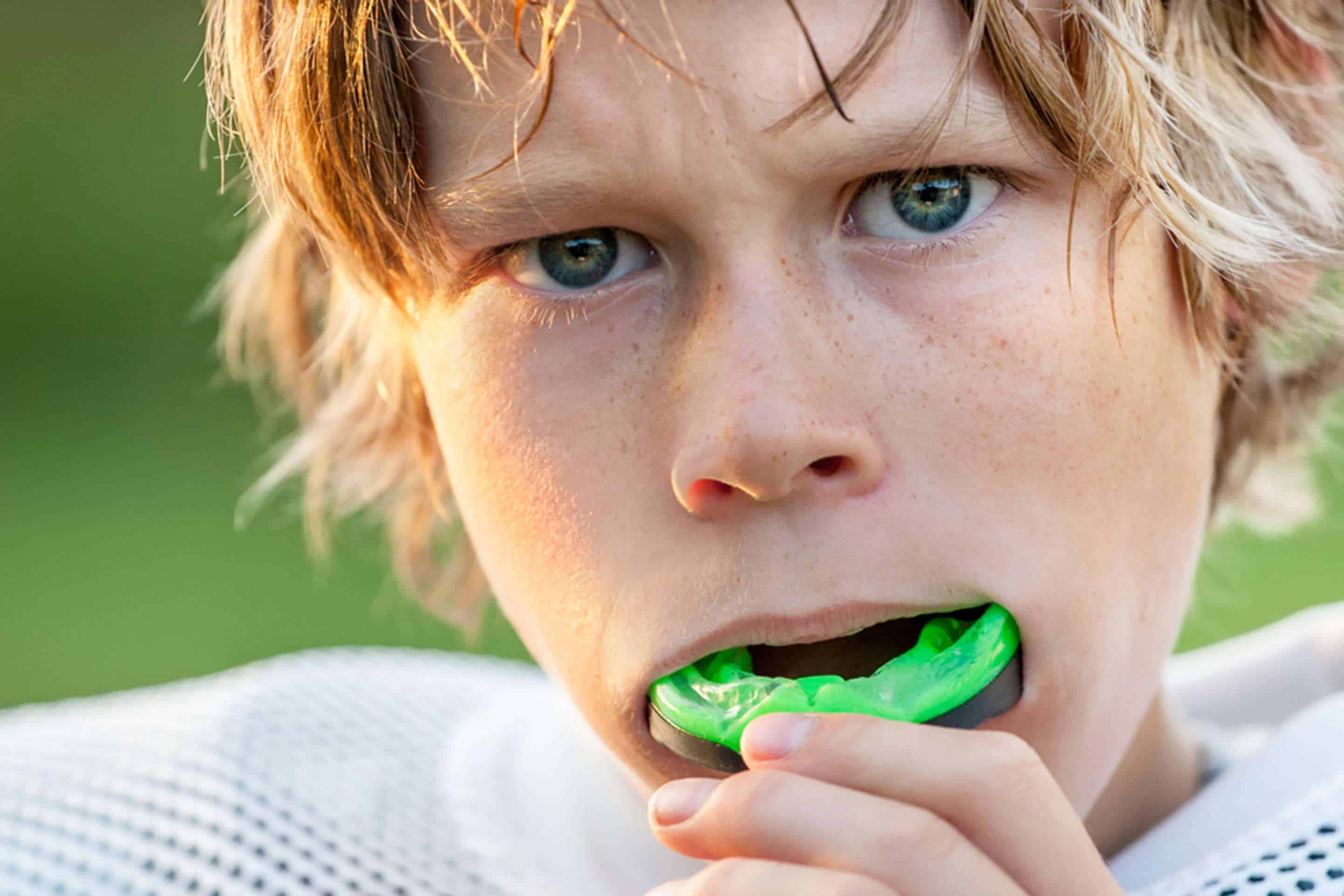If you’re wondering how often you should change your mouthguard — or how often you should replace the mouthguard worn by the child athlete in your family — then the first we want to do is say: “Congratulations.” Oral injuries are the most common form or injury sustained by athletes of all ages. Your choice to wear or provide a mouth guard to protect your teeth and jaw from injury in even minor collisions is a wise one. Thousands of young athletes in Minnesota would be protected from painful and serious injuries if more parents and families would make the same choice.
Now that you have a mouth guard though, several good questions arise. One we are commonly asked is this: “How often and when should a mouth guard be replaced?” Dental mouth guards in Forest Lake absorb a lot of punishment (that teeth would otherwise face). As a result, mouth guards near you have a lifespan and do need to be replaced from time to time. Here’s when to contact a dentist in Forest Lake MN to ask that a new mouth guard be made ready for you or your young superstar athlete.
If your sports season has ended
Over time, the absorbent material in a mouth guard loses thickness to compaction. When that happens, that mouth guard is less able to protect your teeth from injury. The best practice is to replace that mouth guard: at the end of the sports season; every six months; or when the warranty on that mouth guard has worn out… whichever comes first. If doing so is within reach, it’s also a good idea to purchase two mouthguards to avoid there ever being a gap between their “best before” date and when a new one is ready to use.
If your mouth guard is deformed
Athletes have a bad habit of chewing their mouth guards between plays. We’d say they should stop that — stop that! — but we also need to live in the real world where bad habits can be hard to break. Chewing a mouthguard is just one way to twist and deform it to the point that it isn’t providing the protection you need. If your mouth guard has become deformed, get it replaced. One way to know is if it doesn’t slip onto your teeth naturally without having to twist it yourself.
If you’ve had dental work or lost teeth since you got it
Custom mouth guards work as well as they do because they are formed to fit and protect your teeth precisely. If you’ve had dental work done or lost teeth since your mouthguard was made, it may no longer fit properly and may not be providing adequate protection for your teeth and dental work. Keep in mind that when we say “dental work,” that also means orthodontic work. If you have new braces or your teeth are moving, you should ask an orthodontist or dentist near you to help you get a properly fitting mouth guard.
Every six months
We mentioned this guideline earlier, but it’s especially important to replace a mouth guard after six months if it is worn by a young athlete whose teeth and jaw are still growing. That ongoing development will change the shape of those teeth and that jaw. To ensure they’re fully and adequately protected, a mouth guard should be replaced every six months.
Is it time to replace your mouthguard? If so, contact a dentist in Forest Lake MN as soon as possible to get one made. If you don’t have one yet, then it is definitely time to do so. Don’t hesitate to get this essential piece of protective athletic equipment.

